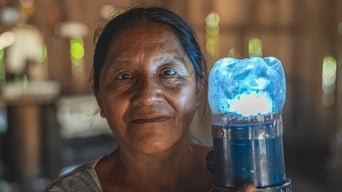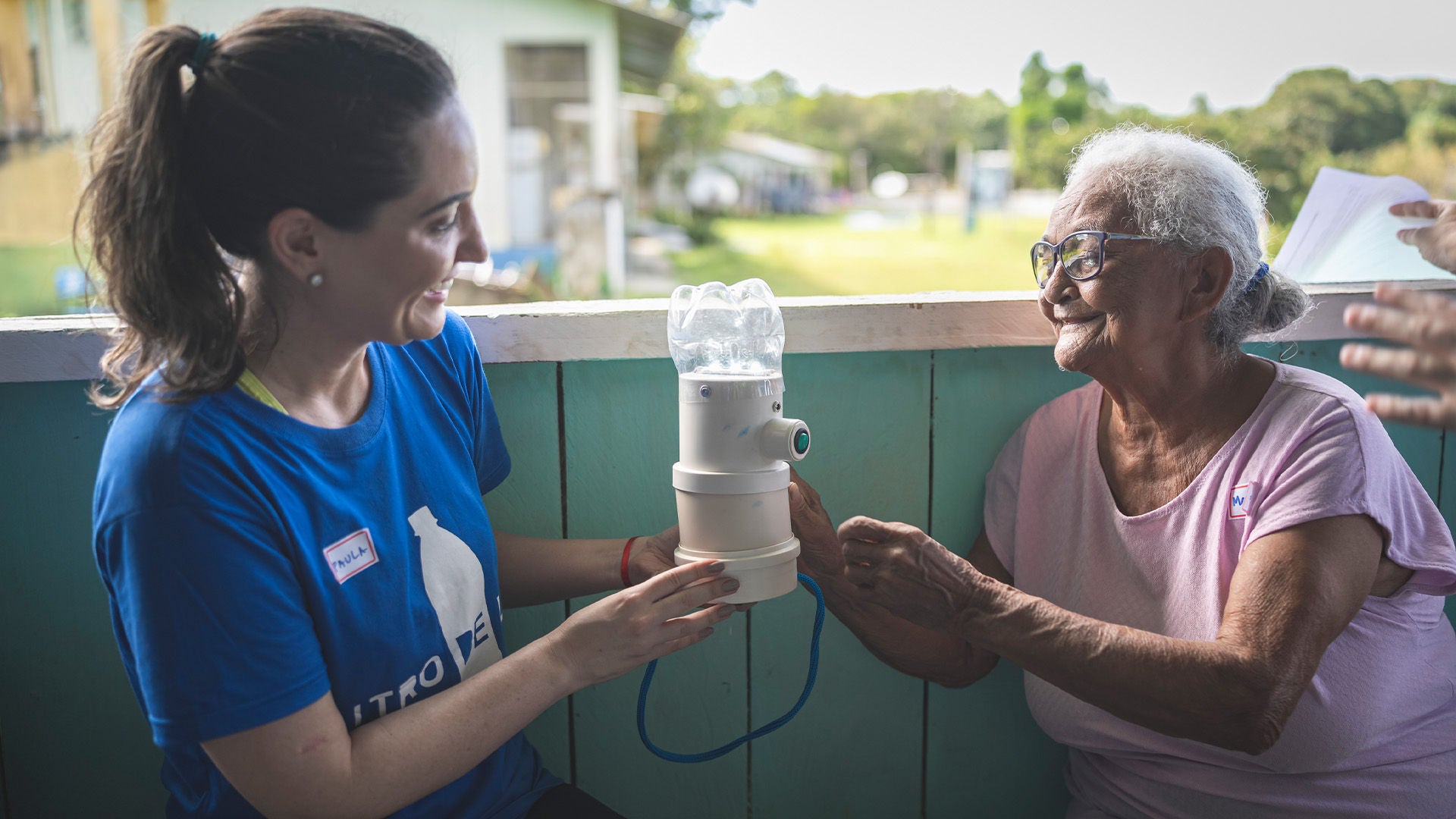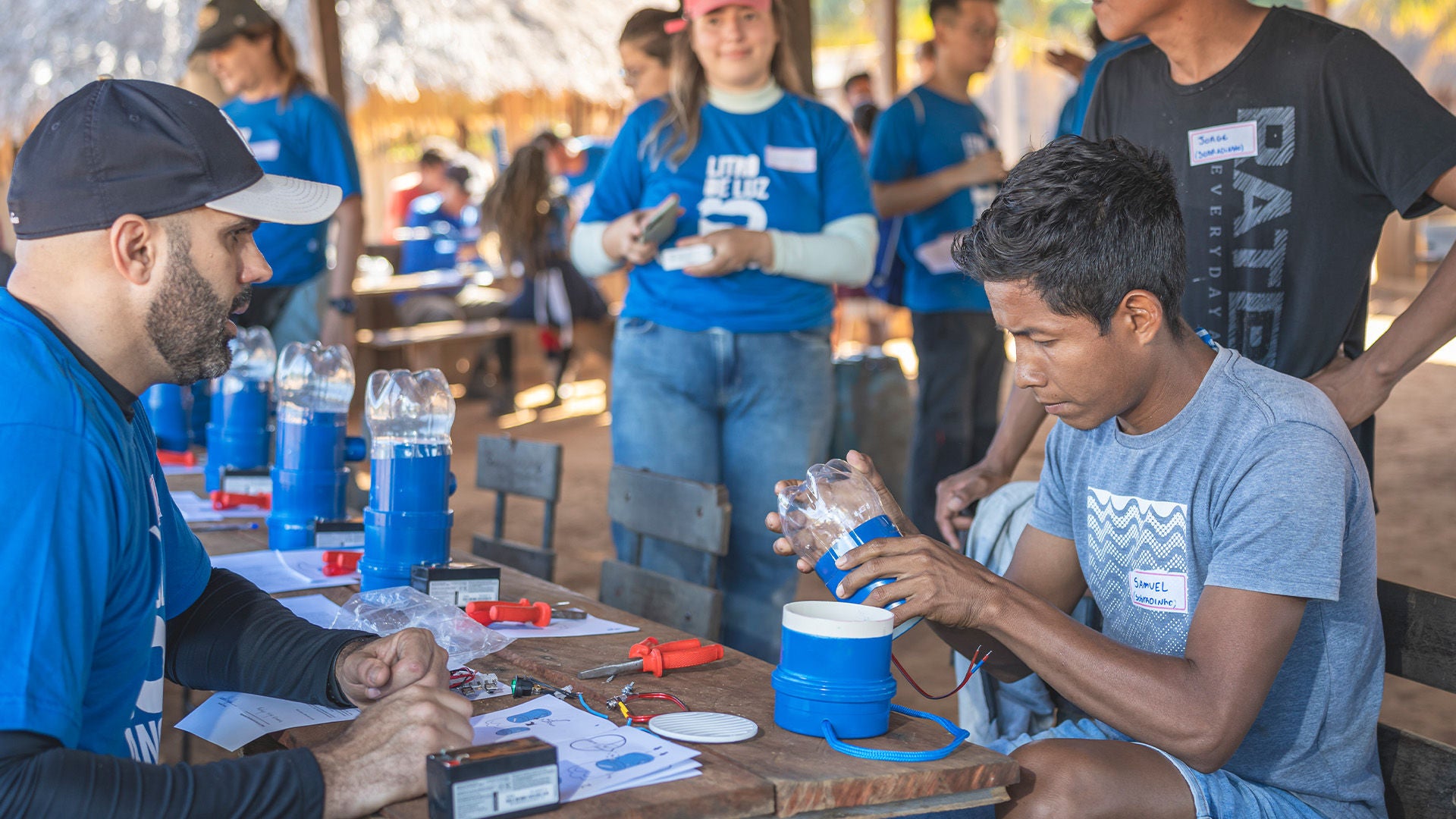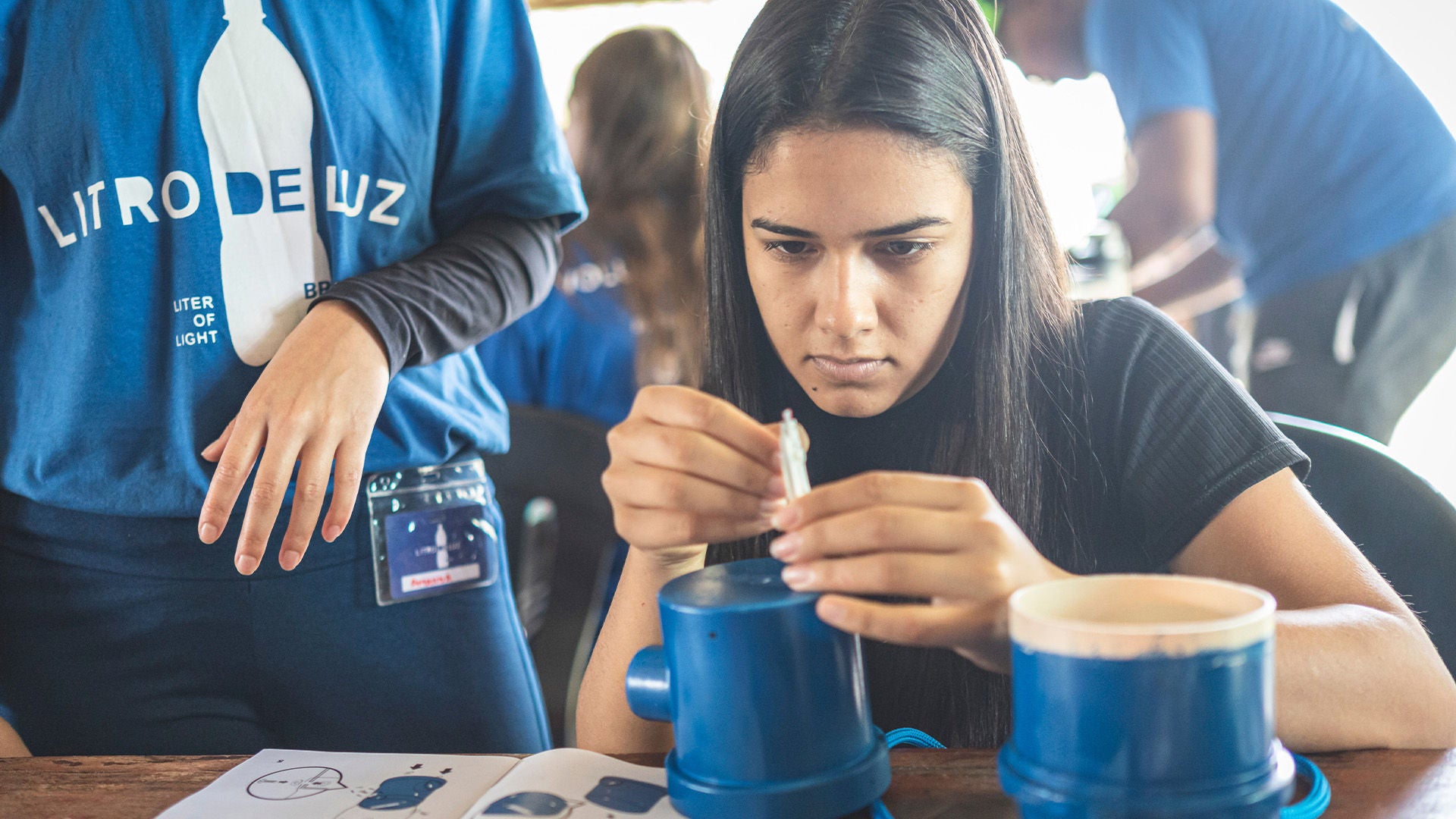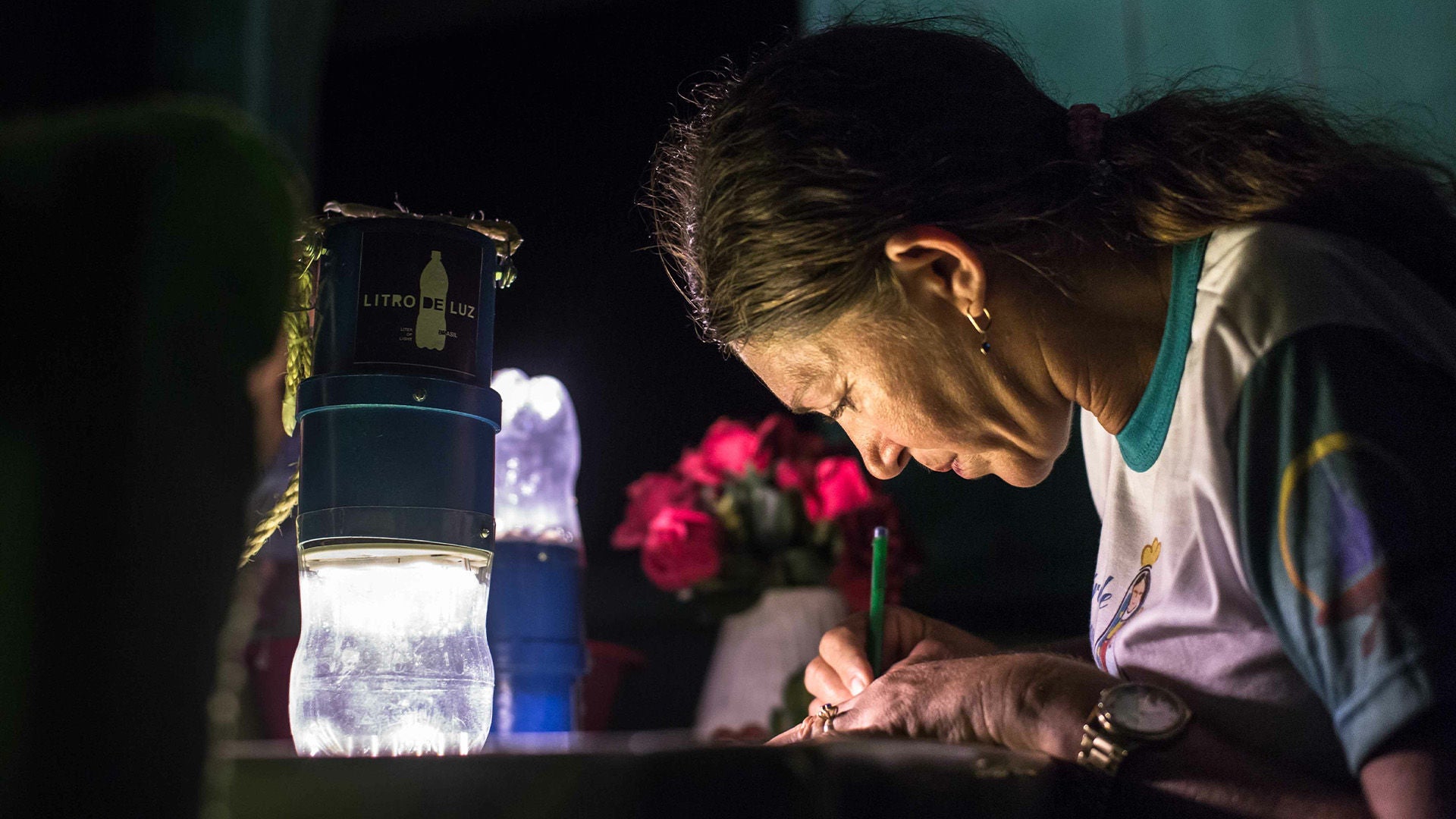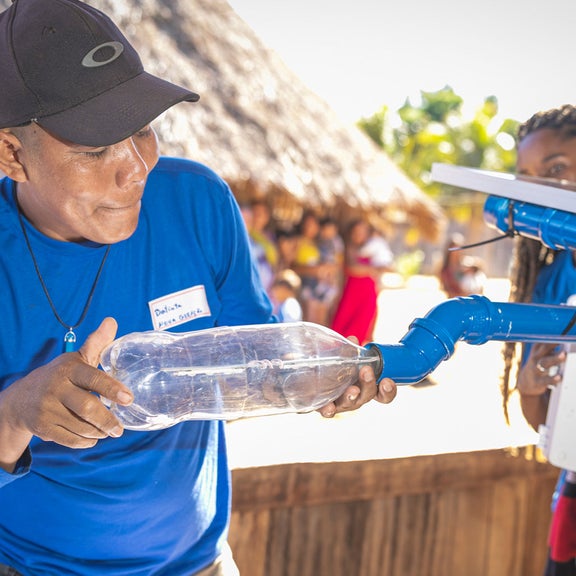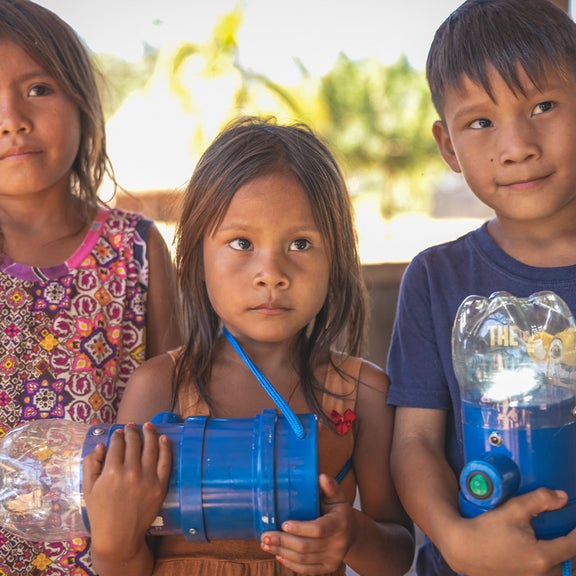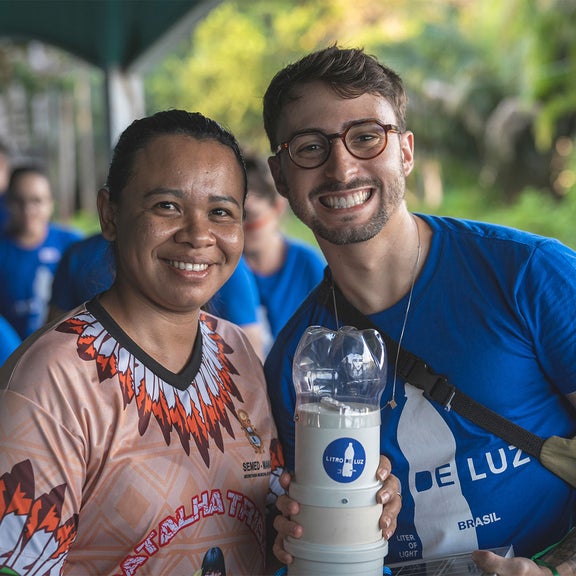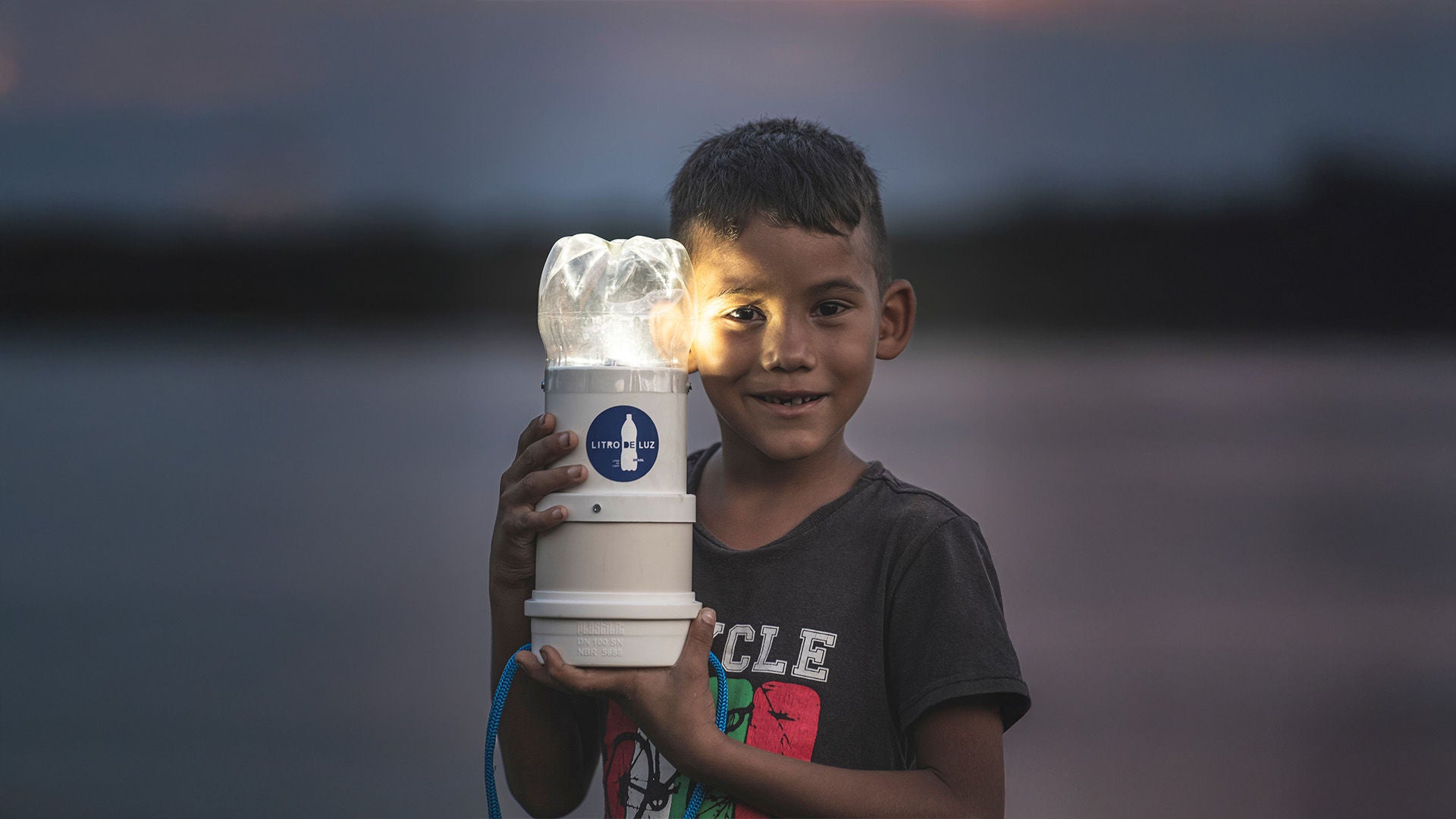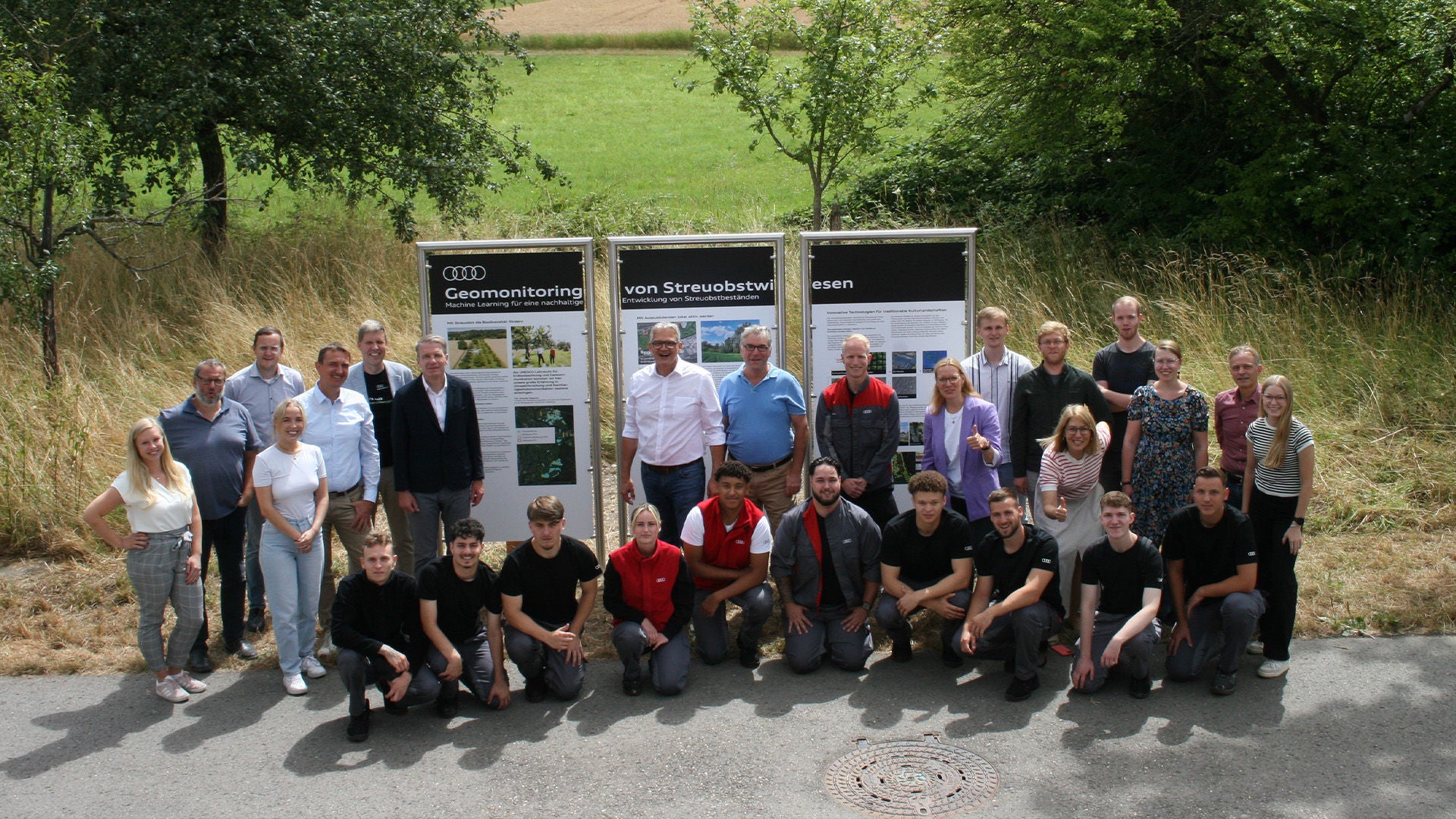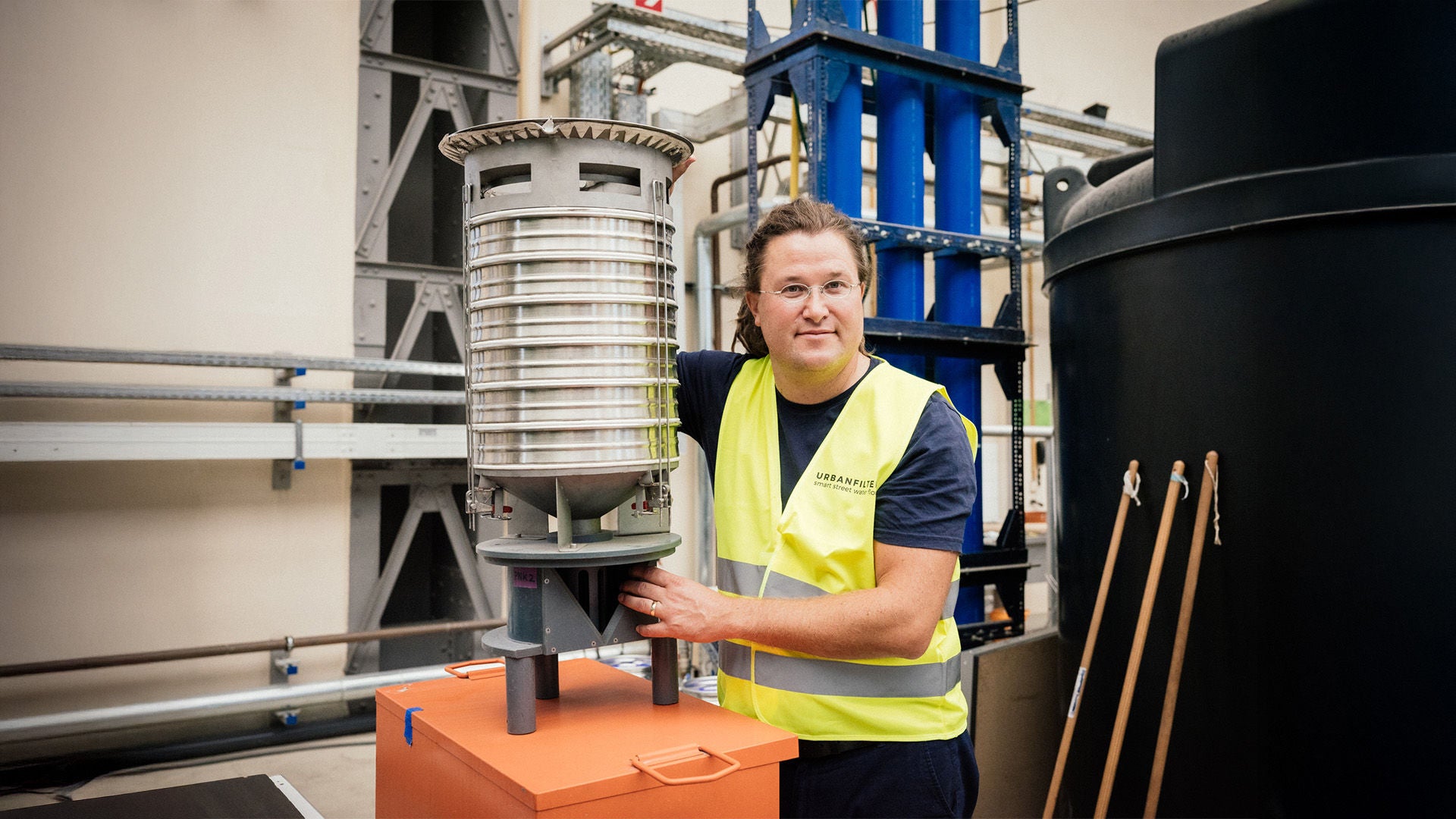Litro de Luz: Solar Lights for Remote Villages in Brazil
The Audi Environmental Foundation and Audi do Brasil have already been supporting the NGO Litro de Luz Brasil since 2022. Their goal: to give people in remote areas without electricity access to solar lighting. This year, at the end of June, the fourth action took place for communities in the Amazon region. A total of 575 people without permanent access to electricity were provided with solar lighting.
08/20/2025 – Reading Time: 5 min
Litro de Luz Brasil is a branch of the global "Liter of Light" movement, an international organization that is represented in over 15 countries. It wants to make life easier by providing sustainable lighting solutions for needy people. With its simple but sustainable solar technology made of materials such as PET bottles and PVC pipes, supplemented by solar panels, rechargeable batteries, and LED lamps, it has already helped over 30,000 residents in remote regions to improve their standard of living.
